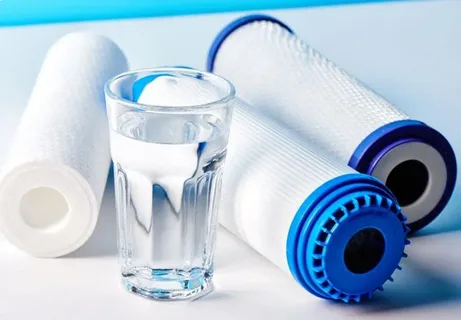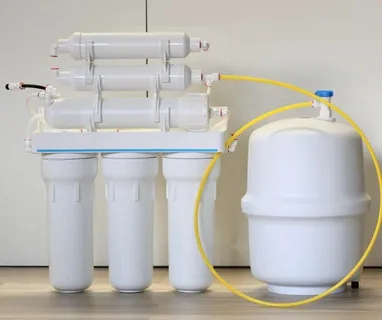Water Filters play a crucial role in ensuring that the water we drink is safe and clean. Contaminated water can have severe health consequences, so it is essential to understand the importance of using water filters in our homes. In this blog post, we will explore the basics of water contamination, the health impacts of contaminated water, how water filters preserve essential minerals, the economic benefits of using a drinking water filter, the environmental impact of bottled water vs. filtered water, how to choose the right water filter for your needs, maintenance tips for water filters, the future of house water filter technology, and answer some frequently asked questions about water filters.
Understanding the Basics of Water Contamination
Water contamination refers to the presence of harmful substances in water, making it unsafe for human consumption and use. This contamination can originate from various sources, including industrial waste, agricultural runoff, untreated sewage, and natural processes that introduce pollutants into water bodies. Contaminants can be broadly categorized into physical, chemical, biological, and radiological. Physical contaminants primarily affect the water’s appearance and include sediment or organic material.
Chemical contaminants, such as pesticides, heavy metals, and toxins, result from industrial discharges and the improper use of chemicals. Biological contaminants include microbes like bacteria, viruses, and parasites that can cause diseases. Lastly, radiological contaminants involve substances with an imbalance of protons and neutrons, emitting ionizing radiation. The infiltration of these contaminants into water sources underscores the critical need for effective water filtration to remove these harmful substances and protect public health. Understanding the diverse sources and types of water contamination is the first step towards mitigating its impact and ensuring the provision of safe, clean water.
The Health Impacts of Contaminated Water
The consumption of contaminated water is a significant public health concern that can lead to a plethora of ailments and diseases. Contaminants such as bacteria, viruses, parasites, heavy metals (like lead and mercury), and chemical pollutants can make their way into water sources, making them unsafe for consumption. Drinking or using such water can result in gastrointestinal infections, diarrhea, and more severe conditions like cholera, dysentery, and typhoid fever. Long-term exposure to contaminated water can also cause serious health issues, including neurological disorders, reproductive problems, and kidney damage.
Children, pregnant women, the elderly, and individuals with weakened immune systems are especially vulnerable to the adverse health effects of contaminated water. This underscores the necessity of implementing water filtration systems in households to safeguard against the health risks posed by waterborne contaminants. By removing harmful pathogens and toxic substances, water filters provide a line of defense, ensuring the water we consume promotes our health rather than jeopardizing it.
How Water Filters Preserve Essential Minerals
One of the lesser-known but highly significant benefits of using water filters is their ability to preserve essential minerals while purifying water. Unlike distilled water systems or reverse osmosis processes, which can strip water of its naturally occurring minerals, many modern water filtration technologies are designed to retain beneficial minerals such as calcium, magnesium, and potassium. These minerals are vital for maintaining human health, supporting bone strength, heart health, and nerve function.
Selective filtration techniques, such as activated carbon filters and certain ceramic filters, are particularly adept at this task. They work by targeting and removing contaminants like chlorine, pesticides, and heavy metals without disrupting the mineral balance of the water. This process ensures that the water not only remains safe to drink but also retains its natural taste and healthful mineral content. As a result, households using these types of water filters can enjoy the dual benefits of purified water that is both safe and nutritionally beneficial.
The Economic Benefits of Using a Drinking Water Filter
Investing in a drinking water filter can lead to substantial economic benefits for households. Initially, while the purchase and installation of a water filtration system might seem like a significant expense, it is cost-effective in the long run compared to the recurring costs of buying bottled water. Families can save a considerable amount of money each year by filtering their water at home instead of purchasing single-use bottled water. Additionally, using a water filter can also mitigate potential healthcare costs.
By ensuring the water you consume is free from contaminants and harmful bacteria, you reduce the risk of waterborne diseases and, consequently, the expenses associated with medical treatment and medications. Furthermore, high-quality water filters have a long lifespan and require minimal maintenance, making them an economically viable option for ensuring safe drinking water. The reduction in dependency on bottled water not only aids personal finance but also contributes to environmental conservation, offering both economic and ecological advantages. Overall, the economic benefits of using a drinking water filter are multi-faceted, impacting household budgets positively while promoting health and sustainability.
The Environmental Impact of Bottled Water vs. Filtered Water
The environmental ramifications of bottled water consumption are far-reaching and unsustainable, particularly when contrasted with the use of filtered water. The production, transportation, and disposal of bottled water contribute significantly to carbon emissions, plastic pollution, and resource depletion. Millions of plastic bottles end up in landfills each year, taking centuries to decompose while releasing toxic chemicals into the environment. Additionally, the energy required to produce and transport these bottles across the globe is staggering, contributing to the overall carbon footprint of bottled water.
On the other hand, filtered water systems offer a more eco-friendly alternative. By purifying tap water at the point of use, filtered water reduces the need for single-use plastic bottles, thereby mitigating plastic waste and pollution. Moreover, the energy consumption associated with filtering water at home is minimal compared to the entire lifecycle of bottled water. This shift not only has the potential to decrease the extraction of natural resources but also lessens the strain on waste management systems.
Adopting filtered water practices can play a crucial role in minimizing our environmental impact, conserving natural resources, and fostering a more sustainable future. As awareness grows, making the switch to water filters can significantly reduce the environmental burdens associated with bottled water.
Choosing the Right Water Filter for Your Needs
Selecting the appropriate water filter requires a careful assessment of your water’s specific contamination issues and your household’s water consumption needs. Begin by getting your water tested to identify the types of contaminants you need to filter out. This will guide you in choosing a system designed to effectively remove those particular substances. For example, if your water has high levels of lead or mercury, a filter certified to remove heavy metals is essential.
Next, consider the water filter’s capacity and the size of your household. Pitcher filters or faucet-mounted models might suffice for small families or individuals, but larger households may benefit from under-sink or whole-house filtration systems to meet their greater water consumption. Additionally, evaluate the maintenance requirements, such as the frequency of filter changes and the ease of cleaning, to ensure they align with your lifestyle. Lastly, take into account the initial investment and ongoing operational costs to ensure they fit within your budget. By carefully considering these factors, you can select a water filter that effectively meets your health, taste, and economic needs, providing peace of mind and promoting wellness in your home.
Maintenance Tips for Water Filters
Maintaining your water filter is essential to ensure its optimal performance and longevity. Start by adhering strictly to the manufacturer’s instructions regarding the replacement of filter cartridges. The frequency of replacement varies depending on water usage and the level of contaminants in your water; however, a general rule is to replace filters every 2 to 6 months. Regularly inspect your system for any signs of wear or damage, such as cracks or leaks, and address these issues promptly to prevent contamination.
For systems like reverse osmosis filters, keep an eye on the storage tank and make sure to sanitize it annually. Cleaning the exterior of your water filter system and checking for sediment build-up can also help maintain its efficacy. Remember, neglecting the maintenance of your water filter can lead to reduced water quality and potential health risks, so take the time to care for your system properly. By following these maintenance tips, you can enjoy clean, safe, and great-tasting water from your filter for years to come.
The Future of House Water Filter Technology
The horizon of house water filter technology is poised for significant advancements aimed at enhancing efficiency, sustainability, and user convenience. Innovations are focusing on the development of smarter filtration systems that can automatically monitor water quality and filter performance, sending alerts to homeowners for maintenance or filter changes. This integration of IoT (Internet of Things) technology means filters will become more interactive and self-managing, reducing the guesswork and manual inspection currently required.
Additionally, research is underway to create more environmentally friendly filter materials that can be easily recycled or that degrade more naturally, decreasing plastic waste. Nanotechnology is another promising area, with scientists exploring the use of nanofibers and carbon nanotubes to capture even the smallest contaminants, ensuring unparalleled water purity while also speeding up the filtration process.
Emerging technologies are also looking at reducing water wastage, a critical aspect especially in areas facing water scarcity. Systems that can recycle and purify greywater (from baths, sinks, and washing machines) for non-potable uses are expected to become more mainstream, further reducing the household’s environmental footprint. These future developments in house water filter technology not only aim at providing safer and cleaner water but also at doing so in a way that is sustainable, efficient, and aligned with the modern, connected home.
 FAQs
FAQs
Do water filters remove all contaminants?**
While water filters are highly effective at reducing many harmful contaminants, no filter can remove 100% of all substances. The extent of filtration depends on the technology used. For instance, activated carbon filters are great for chlorine and some heavy metals, whereas reverse osmosis systems can tackle a broader range of contaminants, including fluoride and arsenic. It’s crucial to match the type of filter to the specific contaminants present in your water.
How often should I change my water filter?**
The lifespan of a water filter cartridge varies based on the model and your water usage. Manufacturers typically recommend changing the filter every 2 to 6 months. However, this can depend on the water quality in your area and the amount of water your household consumes. Adhering to the recommended schedule ensures the effectiveness of your water filter and the quality of your drinking water.
Can filtered water taste different?**
Yes, filtered water can taste different, primarily because the filtration process removes contaminants that may affect the water’s flavor. Additionally, as some filters are designed to preserve essential minerals, these can enhance the natural taste of the water, making it more appealing compared to tap or bottled water.
Conclusion
In sum, the critical role of water filters in our daily lives cannot be overstated. They serve as our primary defense against the numerous contaminants that threaten our water supply, ensuring that we have access to clean, safe, and healthy drinking water. From protecting our health by removing harmful pathogens to preserving essential minerals for our well-being, water filters offer a myriad of benefits. Economically, they provide a cost-effective alternative to bottled water, reducing both our expenses and environmental footprint. As we look toward the future, advancements in water filter technology promise even greater efficiency, sustainability, and convenience, aligning with our growing desire for smarter, eco-friendlier household solutions.
| Other Good Articles to Read |
| Skank Blogs |
| Unreal Blogs |
| Tba Blogs |
| All City Forums |
| Dany Blogs |
| Refuge Blogs |
| The Music Blogs |
| Key Forums |
| The Big Blog Theory |
| Joe Blogs |
| Blogs 4 Me |
| Blogs Emon |
| Related Business Listings |
| Contact Directory |
| Local Business Profiles |



